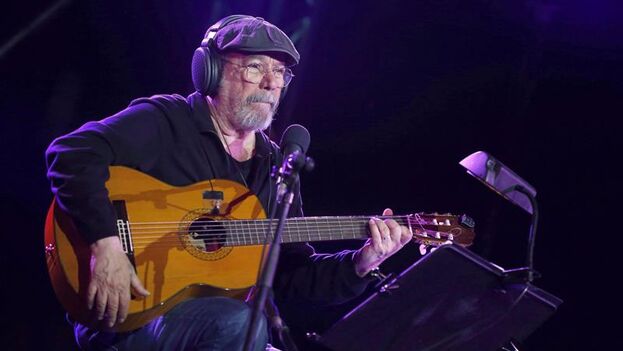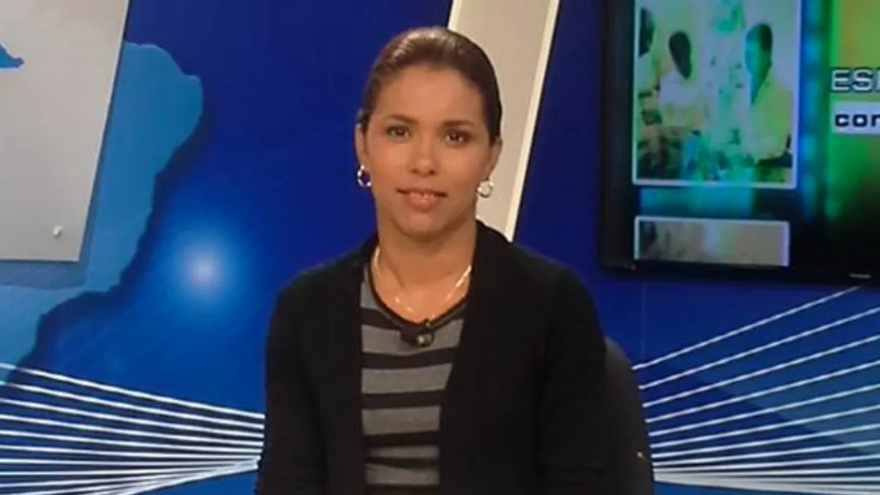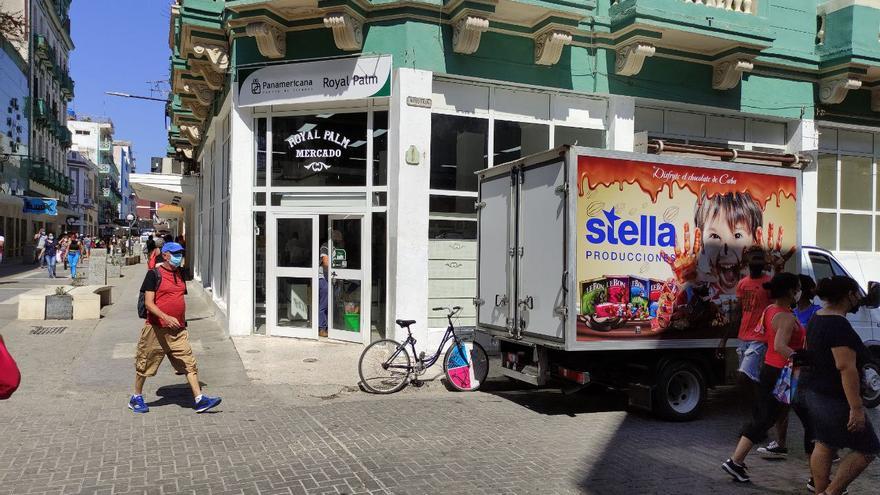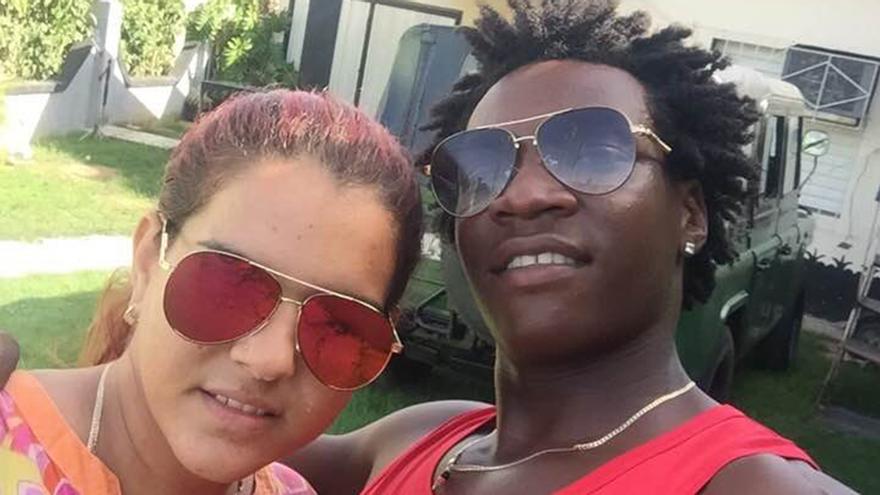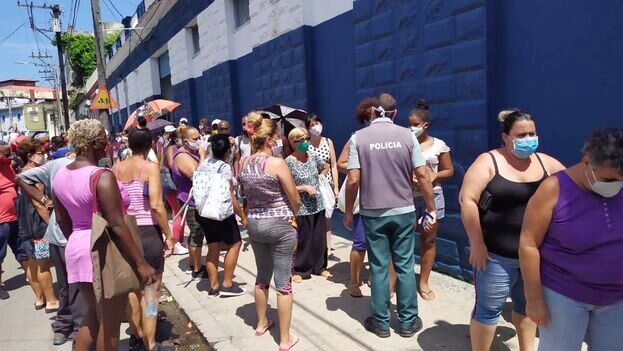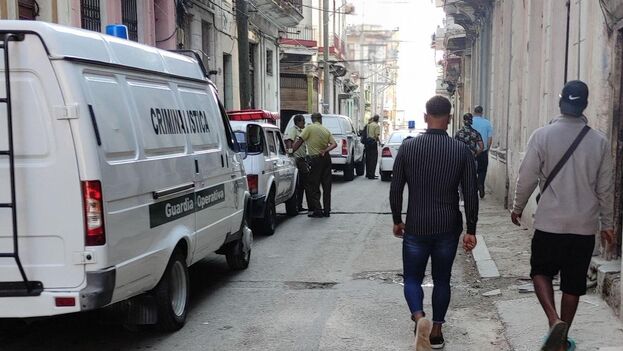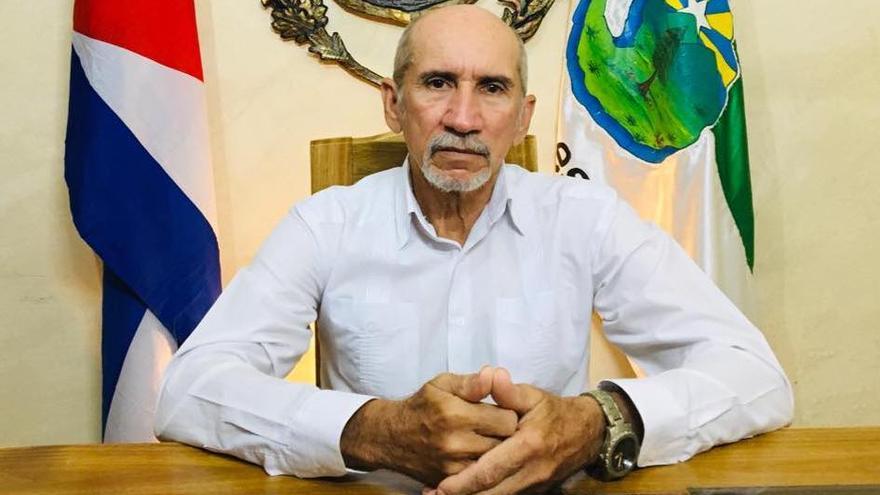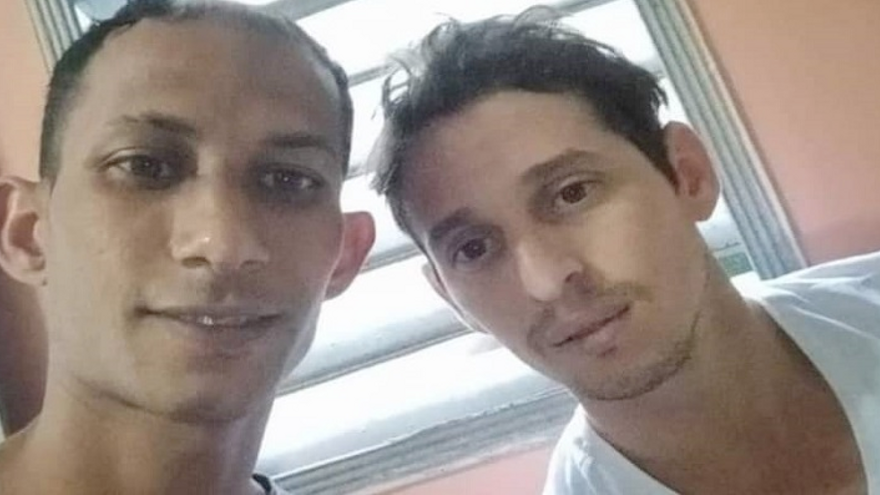The truth is that the Cuban economy minister has been saying the same thing for a long time to justify the decision that led him to authorize these stores in MLC, one more exception of the communist economic and social model that governs the country, difficult to fit into the slogans and ordinances of the communist party, and that have contributed to creating widespread discomfort in many social sectors, especially among those who do not have dollars and have to buy them.
In any case, the minister should tell the truth and explain why he has resorted to these stores that fragment the consumer market, and has forgotten a basic principle of his management, which should be to ensure of all kinds of goods and services are for sale to the population in Cuban pesos, avoiding the permanent shortage of the commercial network.
For those who seek answers without paying attention, the regime dedicates all kinds of flattery, such as “enemies of the revolution,” “people who distort reality,” and endless nonsense, but the reality is that it has never been explained convincingly, why a government launches to open stores that sell all kinds of products in foreign currency or its virtual exchange, the MLC, which has nothing to do with the old CUC (Cuban convertible peso), although many want to draw a parallel. continue reading
The only reason given by the minister, every time he talks about this issue, is that the stores in MLC emerged in 2019 (they are going to last three years when it was said that they were going to be temporary) “as the US blockade against the largest of the Antilles. Specifically, these stores were intended, according to the minister, to prevent foreign exchange from leaving the country by natural persons, then suppliers of the domestic market, to capture it and use it based on the development of the national industry and to maintain a stable level of offers. in pesos; but nobody calculated that an epidemic would make the situation even more complex.”
But if this really were the reason, then it would not be possible to understand how, later, the free entry of travelers through the airports loaded with suitcases with merchandise, such as food, cleaning products, medicines, or small appliances, was authorized, an authorization which has been extended for another six months. One thing does not agree with the other, and contradictions appear in the minister’s argument.
Are these stores in MLC a business of the communist state (commercial margins are 200% and 300% on some products), to fill their coffers with hard currency? Are they a charitable action to be able to finance the acquisition of goods abroad that are paid for in foreign currency? A way to collect as much as possible of the foreign currency that enters the country by any mechanism?
The only certainty is that, in October 2021, the minister explained in the National Assembly that 300 million dollars of the sales in MLC had been used to supply merchandise to the trade network in national currency. That is, by selling products in MLC, the communist state raised funds to buy goods abroad that were later sold to the population in stores that sell them in pesos. It shouldn’t have worked if you take into account that these stores are still empty.
That a country has to resort to this type of mechanism to buy goods abroad says very little about its economic potential and shows that the collapse of tourism, since the second half of 2019, has done a lot of damage to the regime. The exchange control that exists in the Cuban economy, controlled by the state through the Central Bank, paralyzes the country’s activity. Then the ’blockade’ always comes as a justification, since, as the minister said, the dollars collected during the first months of the sale in MLC stores could not be used, “due to the blockade that has just celebrated 60 years of being formalized the receipt of US currency in Cuban banks had to be stopped, as of July 20, 2021.”
The “famous” decision to prohibit cash deposits of dollars in banks, a measure used by private recipients of remittances to refill the electronic cards which they later used to shop in MLC stores. The whole communist tantrum, as a result of the refusal of the United States to do business with companies controlled by the Cuban military and state security conglomerate.
The minister also made reference to the more than 6,000 containers destined for Cuba, with products to supply the stores in Cuban pesos and in freely convertible currencies, and that due to the world crisis “are paralyzed in international ports because there are problems with the shipping companies, with containers and freight costs have increased.”
If you don’t pay, there is no service. You have to get used to paying in cash, especially when you cannot access credit due to a bad history as a debtor. For the umpteenth time, the minister confirmed the transitory nature of the stores in MLC, and said that the objective is being met insofar as its period of time will depend on the recovery of the economy and it can provide the Cuban peso with a real capacity to purchase. And this is where he missed what is perhaps more important.
Provide the Cuban peso with real purchasing power? It is worth reminding the minister that they had ten years to think about the Ordering Task*, whose star measure began with the absurd devaluation of 2,300% of the Cuban peso with respect to the dollar (the largest in history) leaving the national currency in the toilet, with a fixed exchange rate that could never be supported by the central bank, since it lacked foreign exchange.
Mistakes of bad economics students, who did not understand the relationship between the value of a currency, in this case, the Cuban peso, and the fundamentals of the economy it represents. The peso was born broken, worthless, and the informal market has been in charge of showing the minister what it is worth and what its real purchasing power is, after the Cuban economy has suffered a 77.3% variation rate in 2021 year-on-year inflation, one of the highest in the world.
That is why now, the minister is facing a scenario of adjustments and consolidation of spending that he should be afraid of, because it usually ends in the form of a social explosion, such as the one that occurred last July. Decisions such as those adopted by the Ordering Task make us lose the little confidence and credibility that we have in the Cuban communist regime, and for this reason, the dollar will continue to rise and drag down the peso as happened in the Special Period. And it is most likely that the minister will continue to blame everything on the ’blockade’. He has for a long time.
But coming down to reality, the problem with the stores in MLC is that they are profoundly unfair and do not fit easily into the populist paradigm of the Cuban communist regime. How can it be accepted that those who live off the dollars sent by the exile ’gusanos’ (worms) live much better than those revolutionaries who receive miserable salaries and pensions in pesos? How can it be allowed that the farmer who sells cassava in Cuban pesos has to change to dollars to buy tools or supplies in dollars in stores in his own country? Where are you trying to get to with the stupidity?
The minister clumsily justifies himself by saying that “if tomorrow we put these goods up for sale in national currency they will last 15 days and then there will be neither neither hard currency nor pesos.” Well, and why don’t you explain the reasons that lead to this scenario, which does not exist in other countries of the world, and not the alternative that can lead to companies, when faced with growing demand, simply doing what they have what to do, what is to produce more? Has the minister stopped to think why that link between demand and supply is non-existent in Cuba? Is that why there are no domestically made canned sodas or floor mop-clothes?
The unfortunate and shameful thing is that it is said that the stores in MLC are “a measure of social justice because it allows us to redistribute the currency based on the supply of the commercial network in pesos.” Fake. Why does the currency have to be redistributed? In whose hands is it and why can’t distribution companies manage changes based on their operations? Why this suffocating control of the economy that does not let it work? An exchange rate system that does not depend on political and interested decisions of the regime would work much better, because it would serve the needs of economic agents. Much has been said about eliminating obstacles, the minister already knows where they can start.
And now, to make matters worse, inflation hits the whole world hard, and it can only be resolved, and the minister is right about that, if an increase in product availability is achieved by the state, or by anyone, in national currency.
It is true that this cannot be achieved overnight, but since 2019, when the stores in MLC have been operating, there has been plenty of time to overcome the problems of agricultural and industrial shortages, and of all kinds of services.
The minister really knows that there is something in the Cuban economy that prevents it from achieving these objectives and that it is not outside, but inside, and that we call it “internal blockade.” Much more serious than the other, and based on the fact that the regime does not want to lose control of the economy at the expense of economic actors.
*Translator’s note: Tarea ordenamiento = the [so-called] ‘Ordering Task’ which is a collection of measures that includes eliminating the Cuban Convertible Peso (CUC), leaving the Cuban peso as the only national currency, raising prices, raising salaries (but not as much as prices), opening stores that take payment only in hard currency which must be in the form of specially issued pre-paid debit cards, and others.
____________
COLLABORATE WITH OUR WORK: The 14ymedio team is committed to practicing serious journalism that reflects Cuba’s reality in all its depth. Thank you for joining us on this long journey. We invite you to continue supporting us by becoming a member of 14ymedio now. Together we can continue transforming journalism in Cuba.
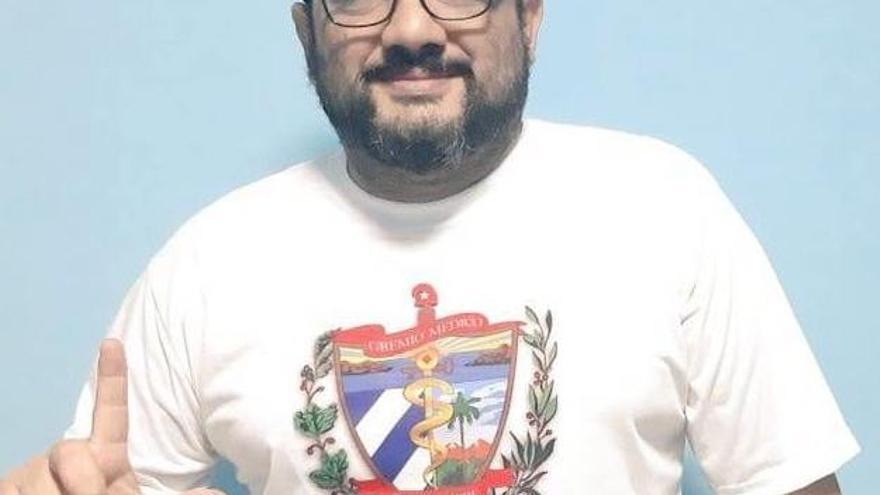
![]() 14ymedio, Luz Escobar, Havana, 14 February 2022 — The threats and harassment against the doctor Alexander Jesús Figueredo Izaguirre have not stopped since, last year, the Ministry of Public Health expelled him from his job and invalidated his university degree. This Sunday, State Security went looking for him at his home in Bayamo (Granma province) and gave him two warning letters before releasing him several hours later, he told 14ymedio.
14ymedio, Luz Escobar, Havana, 14 February 2022 — The threats and harassment against the doctor Alexander Jesús Figueredo Izaguirre have not stopped since, last year, the Ministry of Public Health expelled him from his job and invalidated his university degree. This Sunday, State Security went looking for him at his home in Bayamo (Granma province) and gave him two warning letters before releasing him several hours later, he told 14ymedio.
